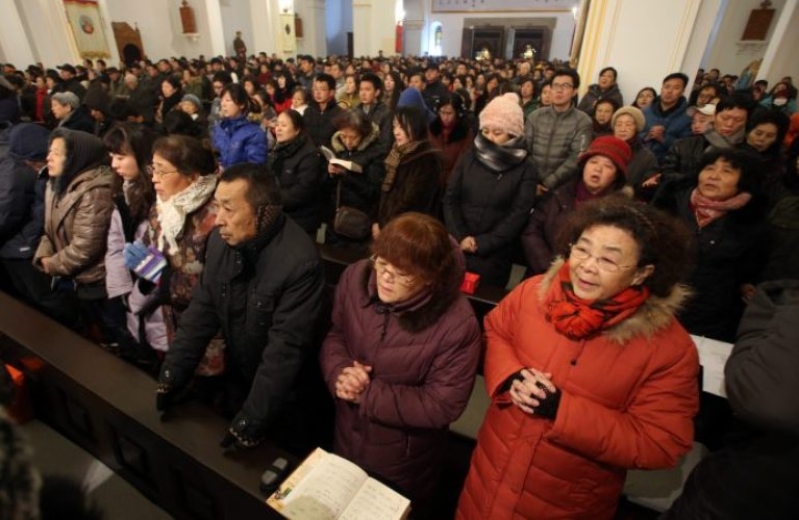
Catholic experts warned new rules governing religion in China could hamper the church's work severely by curbing their foreign contacts and imposing heavy penalties for unauthorized activity.
"Compared with previous drafts, these regulations are more restrictive, since they include references to national security," said Anthony Lam, executive secretary of the Holy Spirit Study Centre of Hong Kong's Catholic diocese, in Crux.
"They may not make a great difference for China's underground Catholic Church, since it's illegal anyway. But they'll have a great impact on the church's open community, which has to report everything to the government."
China's government officials are slated to approve the draft regulations and implement them Oct. 7.
Lam said the new regulations contradicted progress in recent talks between the Chinese government and Vatican representatives. Reuters reported Aug. 27 that Cardinal Pietro Parolin, Vatican secretary of state, was heralding a "new season" in "hoped-for good relations."
The 74-article text, published Sept. 8 by China's State Council for Legislative Affairs, tightens control over foreign clergy and online religious material. It also imposes fines of up to $30,000 for "illegal religious activities," such as unauthorized pilgrimages. The new regulations state that "citizens enjoy religious freedom" in China and that "no organization can discriminate against citizens who believe in a religion."
Lam told Catholic News Service Sept. 30 the draft was much more extensive than existing rules, implemented in 2005, and reflected attempts by China's State Administration for Religious Affairs to "enlarge its power over religions."
Father Paul Han Qingping, director of the Catholic Church's Jinde Charities, said the Chinese government was "upgrading its religious policy" because of "international and domestic challenges, such as religion-related terrorism." He said the restrictions would alarm Catholic communities, despite accompanying pledges to "protect citizens' religious freedom."
"The new rules could be good in clearly stating the do's and don'ts and placing everyone on the same page," said Han, "but they could also be bad by making religious communities nervous as to how far their freedom will now be hampered."
Han predicted the regulations would "create a lot of inconveniences and restrictions," but said he believed they also reflected "the real world we're living in."
These restrictions aren't meant only for the Catholic Church, which is quite small compared to others, but for all the religions in China, said Han.
In a Sept. 23 analysis, Father Bernardo Cervellera, a member of the Pontifical Institute for Foreign Missions and editor of the Rome-based AsiaNews, said the proposed regulations went well beyond previous curbs and could spell "the end of the underground community" in China. He said article 44 prohibits "proselytizing, establishing religious organizations or setting up religious activity sites" in state schools and stipulates the state's "right to coerce and enforce lessons of atheism and Marxism in religious schools."
The priest said building places of worship now would be subject to a complex approval process "through all levels of government," and reflect a recent campaign to "reduce the visibility of Christian buildings."
The Catholic Church, estimated unofficially at 14 million members, has 110 dioceses with more than 100 bishops in China. Chinese government regulations require church sites and key leaders register with the government, but about 30 of the 100 bishops have refused to do so, reports Crux.







